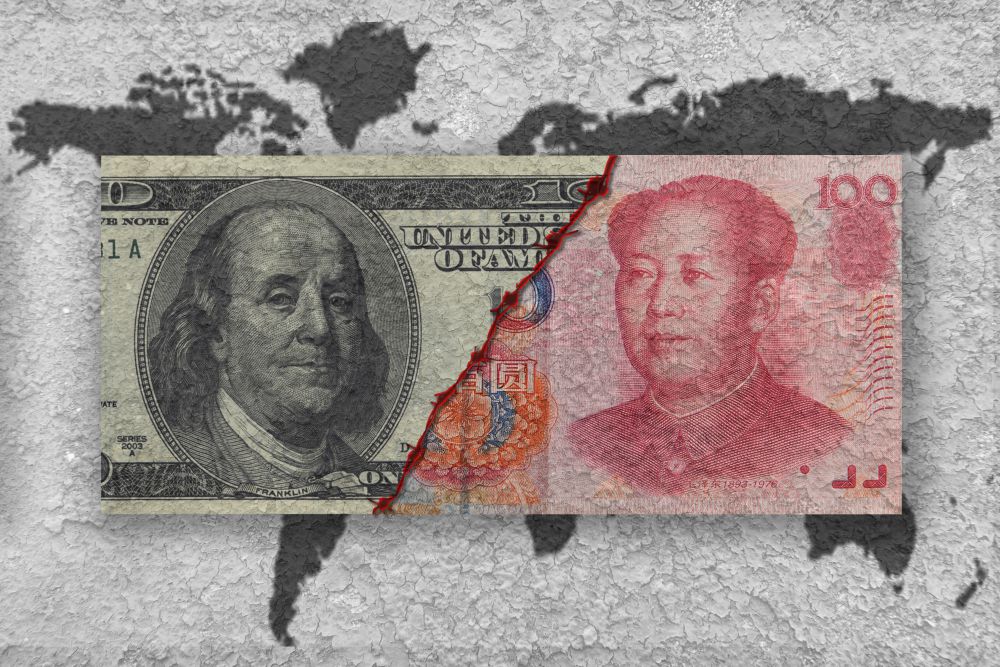
A Deficit of Sense

When President Trump imposed tariffs on steel and aluminum imports March 8, he said he was “defending America’s national security” from countries that have treated the U.S. “unfairly,” as evidenced by its trade deficits.
The pushback came fast from all sides: the Republican leadership, Democrats, U.S. business interests and nearly every trading partner, including Mexico, Canada, China, the European Union and others. Domestic opponents argued tariffs would raise the price of consumer goods, while foreign governments raised the specter of something more ominous: trade wars.
On Thursday, March 22, Trump said he would impose $60 billion in annual tariffs on Chinese imports. The announcement came the same day the White House said it would grant several American allies exemptions to the steel and aluminum tariffs scheduled to go into effect Friday, March 23.
Benjamin J. Cohen, the Louis G. Lancaster Professor of International Political Economy in UC Santa Barbara’s Department of Political Science, hopes the tariffs don’t lead to an economic battlefront. “In a trade war, governments compete to block imports in order to divert spending to domestic import-substitutes,” he said. “The idea is to promote production and jobs at home.”
But in an age of interconnected supply chains crosshatching the planet, he explained, trade wars become “much more dangerous.” That’s because one of the key characteristics of the globalization era is what he called “the multinationalization of production.”
“The production process for many goods — especially more complex manufactured goods like automobiles or aircraft — is carefully unbundled and scattered around the globe in vast supply networks (otherwise known as global commodity chains or value chains),” he said. “As a result, at least a third of world trade in processed goods consists of intermediate goods (inputs) rather than the final product. And that means that if some final products are blocked because of a trade war, the effect will not be limited to those products alone. The impact will reverberate through the entire world of trade, like ripples in a pond.”
Trump, however, tweeted March 1 that “trade wars are good, and easy to win.” The president has said repeatedly that American trade deficits with countries such as China and Germany show they’re taking advantage of the U.S. But Cohen said Trump’s focus on trade balances is simplistic.
“For him, a deficit means we are ‘losing;’ a surplus means we are winning,” he said. “But as any first-year economics student will tell you, that is nonsense.”
Cohen noted that the U.S. had trade surpluses during the Great Depression and trade deficits during the Clinton Administration “when growth was strong and millions of jobs were being created. Who thought we were losing?”
“In fact, trade wars almost certainly mean net losses all round, for two reasons,” Cohen explained. “First, we lose as consumers, because tariffs or other barriers mean higher prices, reducing our purchasing power. And second, we lose because the gains of those who are helped by trade barriers (import-competing producers) will almost certainly be outweighed by the losses to those who are hurt by retaliatory barriers erected elsewhere (exporters). The logic is straightforward. If trade results in net benefits (gains exceeding losses), as economists generally believe, then it follows that blocking trade will mean a sacrifice of those net benefits (losses exceeding gains).”
Picking a trade fight with China could be especially fraught, Cohen said. Total trade between the U.S. and China is valued at roughly $560 billion a year, with a American trade deficit of some $360 billion annually. In addition, China holds $1.2 trillion in American debt, the most of any country.
“We don’t know how vigorous the Chinese will be in reacting to Trump’s trade measures, but we can be sure that they will retaliate in some manner,” Cohen said. “China is our biggest trading partner. If Beijing wants to, it can do serious damage to many sectors of the U.S. economy, from agriculture to aircraft.
“My guess is that, initially at least, they will be restrained in their response — imposing limits on imports of a variety of U.S. products (e.g., soybeans and sorghum) but keeping them relatively moderate,” he continued. “A shot across the bow, as it were, that they might hope would give President Trump a face-saving way to act with restraint or possibly to back down. But if the administration digs in its heels -— or worse, if it retaliates against the Chinese measures with a new round of restrictions — then all bets are off. Beijing is in a position to inflict real pain.”
The last U.S. trade war followed the Smoot-Hawley Tariff act of 1930, which imposed steep tariffs on thousands of goods. American’s trading partners retaliated with their own tariffs and U.S. exports fell 61 percent over the next four years. Economists generally consider it a disaster. With a new trade war, Cohen warned, “the damage could be much worse” given the global nature of production.
“It really depends on how other governments respond to Trump’s threats,” he said. “They could timidly decide to live with new trade barriers from Washington, but I doubt it. After all, they have domestic politics too, and governments are likely to be lobbied vigorously to protect their own exposed industries. Or they could be tempted to offer concessions to Washington to avoid new import barriers — a form of appeasement. But I doubt that, too, since it would just feed the beast. Trump would simply be encouraged to make new threats to gain even more concessions.
“In my opinion, the most likely result would be a fracturing of the world trading system,” Cohen continued. “Governments will have an incentive to reduce their exposure to actions from the U.S. by joining together in trade agreements that exclude the U.S. — such as the revived TransPacific Partnership, which has now come back to life without Washington. Europe is signing agreements with Canada and others, and of course China has its own plans for a trade bloc based in Asia. A fracturing into trade blocs is what happened in the 1930s, and there are many who have identified that as a major factor in the build-up of tensions that ultimately resulted in world war.”



